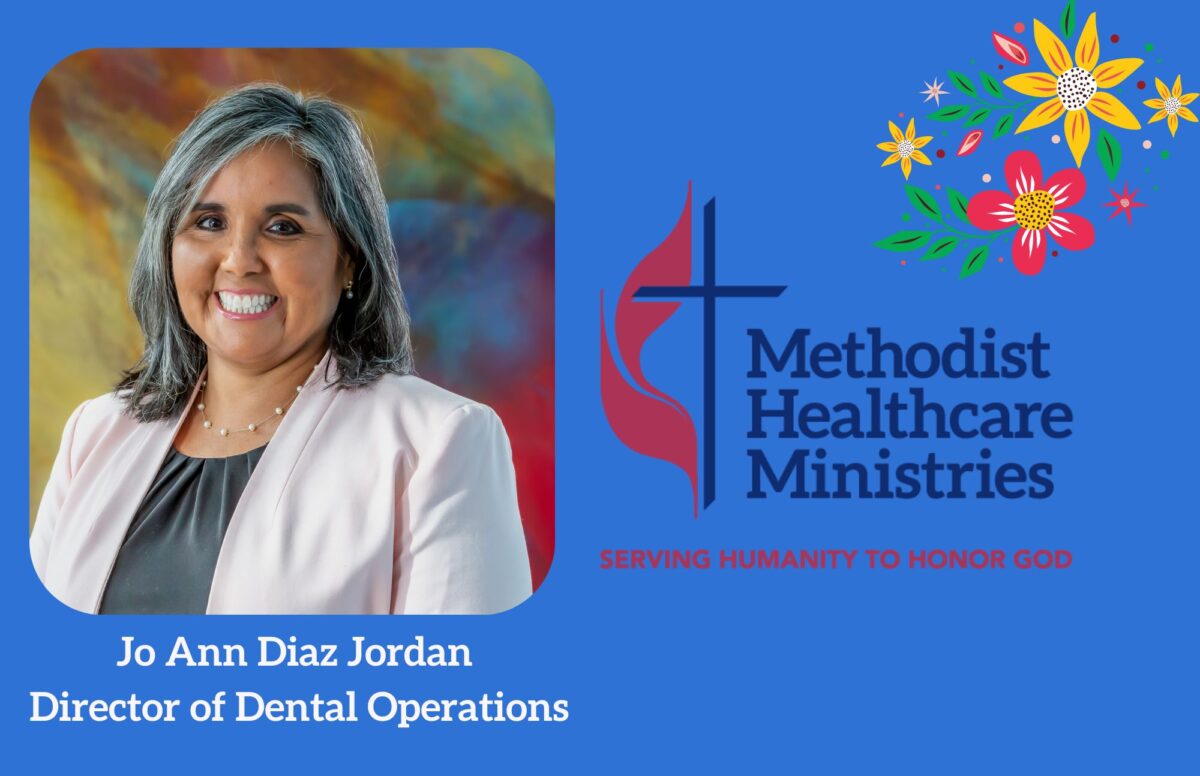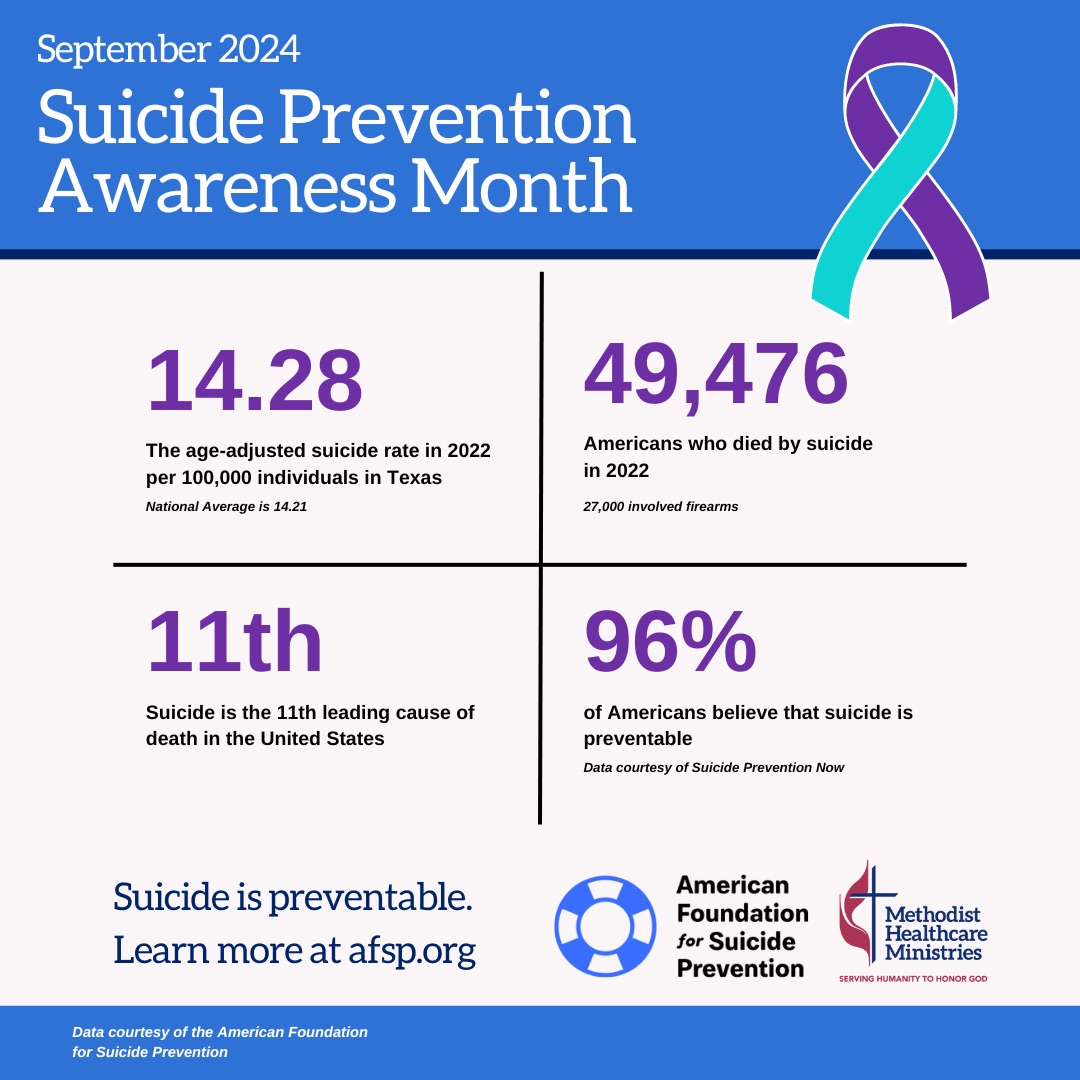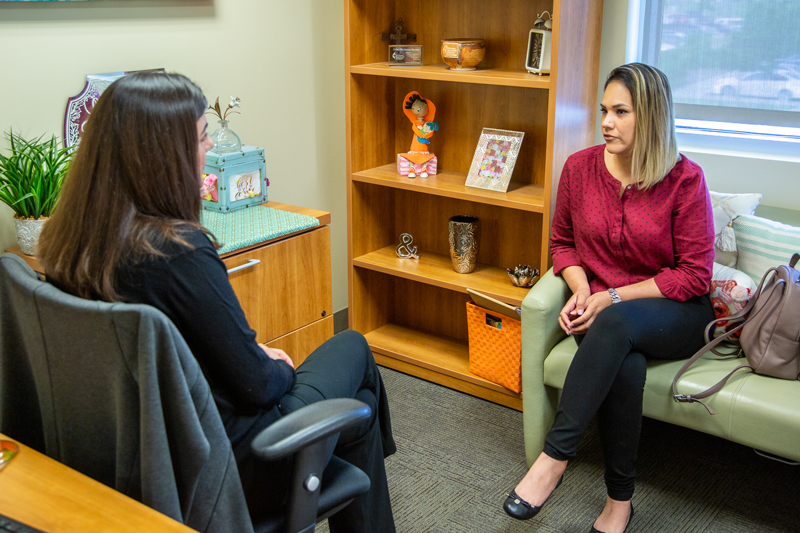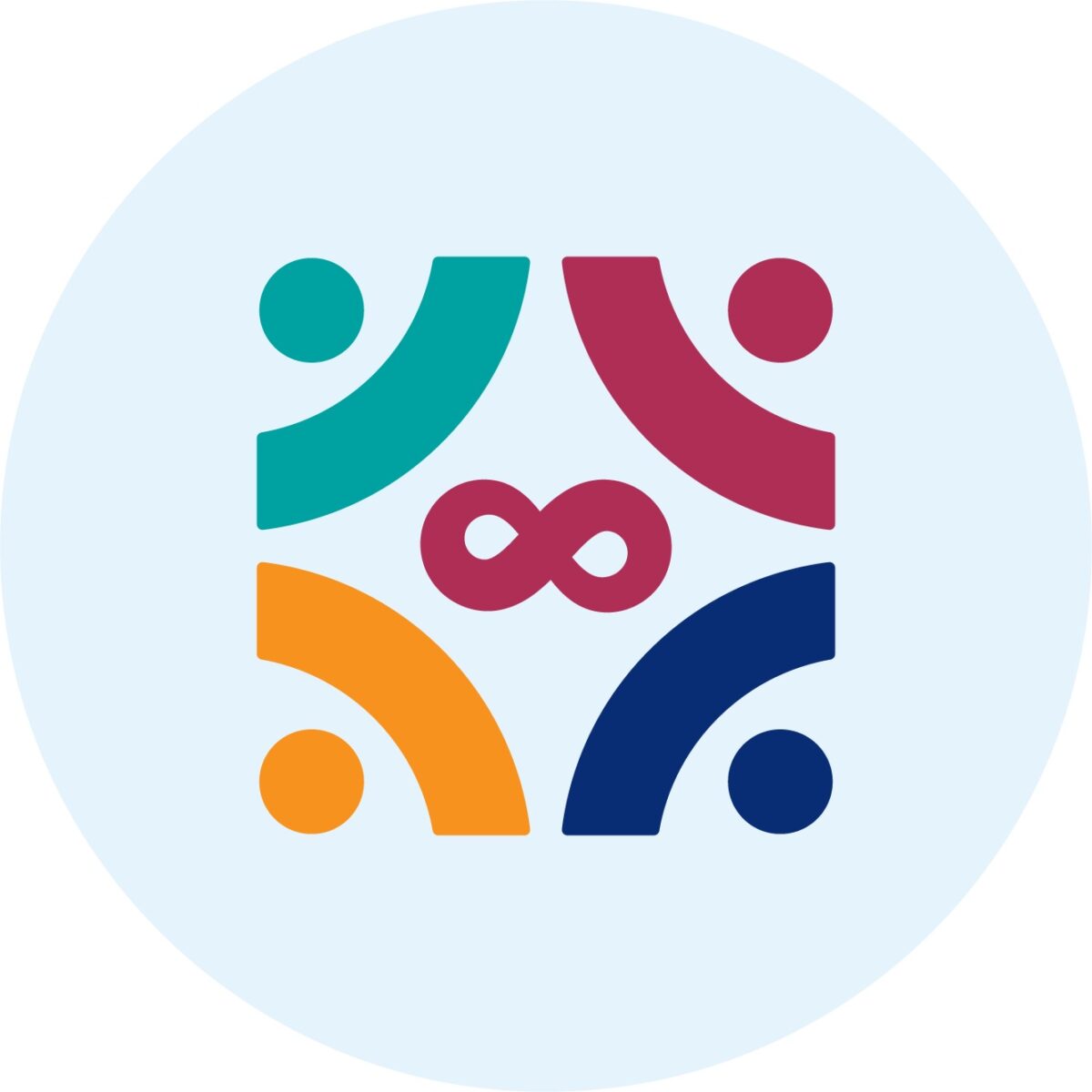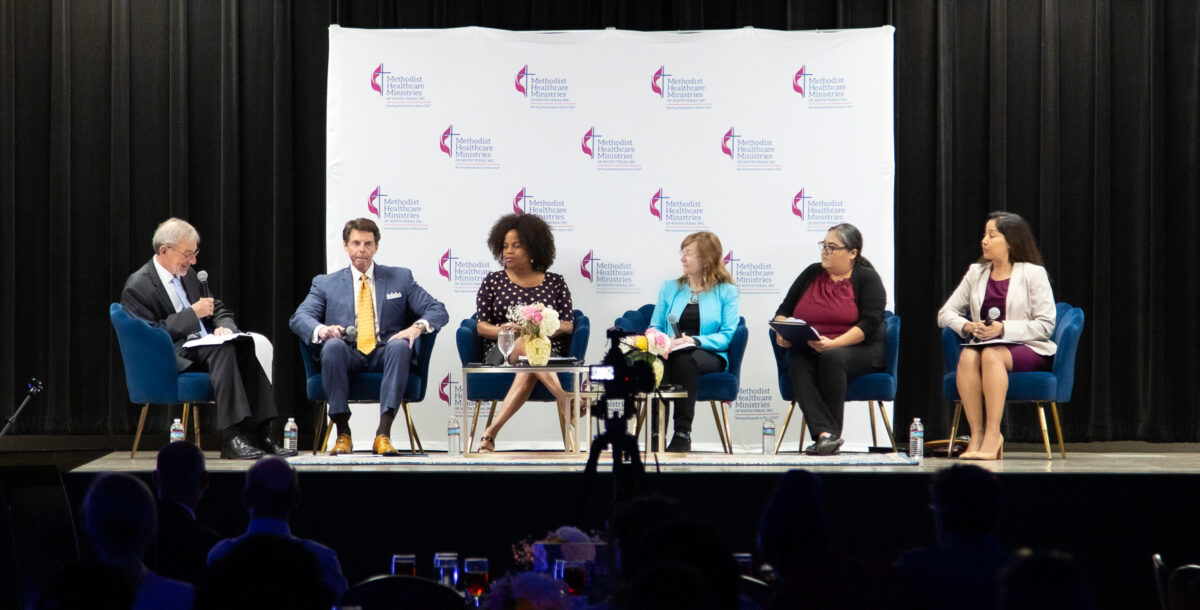A Journey of Transformation: A Deeper Dive into MHM’s First Strategic Focus Area
As Methodist Healthcare Ministries of South Texas Inc. (MHM) continues its journey to advance health equity, three strategic focus areas have served as its guide: Transform Internal Processes and Culture, Strengthen Communities, and Impact Systemic Change. These focus areas build upon Methodist Healthcare Ministries’ historic strength in providing access to care, while addressing conditions and circumstances that affect the health and well-being of the communities it serve. The first of these strategic focus areas has had a significant impact at different levels across the organization. By intentionally transforming processes and culture, MHM is fostering a workplace where a spirit of continuous improvement and an environment of equity, diversity, and inclusion guide the organization’s work, policies, processes, and procedures. Below are some milestones in MHM’s journey of internal transformation.
Establishing Intentional Investments:
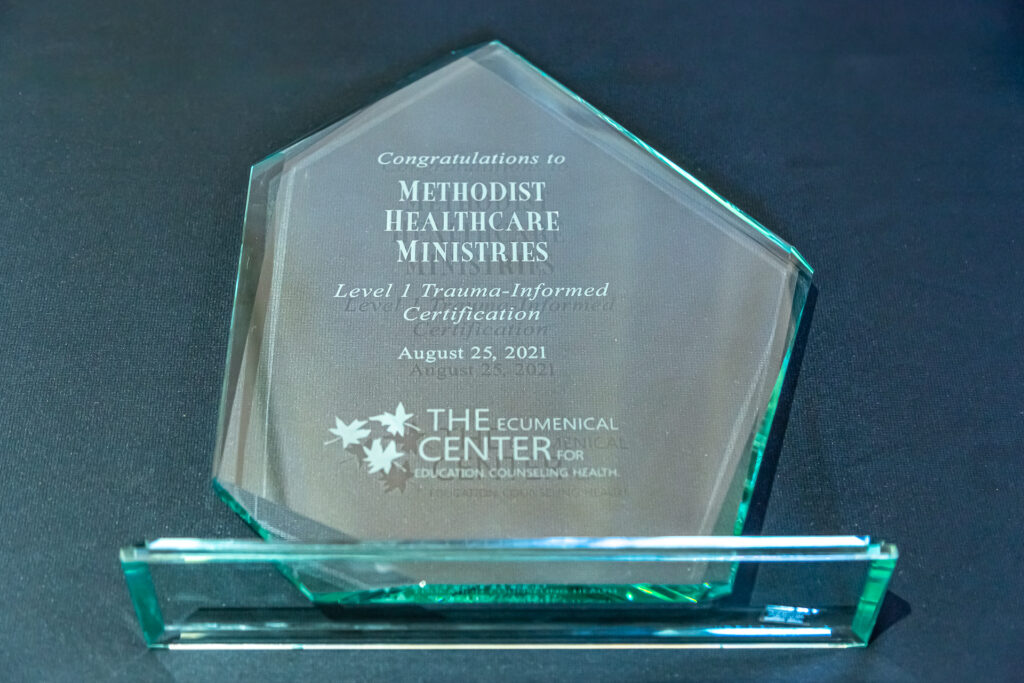
In August 2021, the Ecumenical Center, the certifying entity for the South Texas Informed Care Crisis Consortium, recognized MHM as the first organization in Bexar County to attain a Level 1 – Trauma Informed Certification. This organizational approach addresses the impacts of trauma, and underscores the importance of physical, psychological, and emotional safety for everyone while helping improve the interaction with those MHM serves and works alongside across its region. Trauma Informed Care practices can help improve client, patient, and employee relationships, and help organizations avoid retraumatizing those who have experienced trauma in the past. “Becoming a Trauma-Informed Care Certified Organization enhances the relationships we build with the patients and clients we see in our own clinics and ultimately, improve their health outcomes,” said Jaime Wesolowski, MHM’s President & CEO.
MHM is making intentional investments to further its reach beyond philanthropy; implementing intentional anchor strategies that leverage local community assets in its operations. As part of MHM’s commitment to invest in the local community, 46% of its total spending goes to suppliers that represent historically underserved groups. There has been an increase in contracting and spending with Small, Women and Minority Owned Business Enterprises (SWMBE) and Veteran-Owned Businesses (VOB). To continue these efforts, internal goals and practices have been established to identify spending opportunities with these vendors. MHM supports the health and well-being of all – including its employees. The minimum wage was raised to $15 an hour to improve the standard of living for team members and their families.
Opportunities for Organizational Improvement and Success:
In late 2020, Wesolowski appointed Oanh Maroney-Omitade to lead the newly formed Organizational Excellence (OE) department. The department aims to enhance organizational systems and implement the organization’s strategy for equity, diversity, and inclusion. “Oanh is a leader with a proven track record of excellence and profound institutional knowledge, which is critically needed to drive the type of changes that are necessary for reimagining how we operate within and across functions and to support the effective implementation of Methodist Healthcare Ministries’ strategic work,” said Wesolowski in a 2020 press release. The OE department has continued to expand with more team members to assist with evaluation, performance excellence, and diversity, equity and inclusion. Maroney-Omitade, VP of Organizational Excellence, said, “it’s collectively the things that are going to help to make the organization better.”
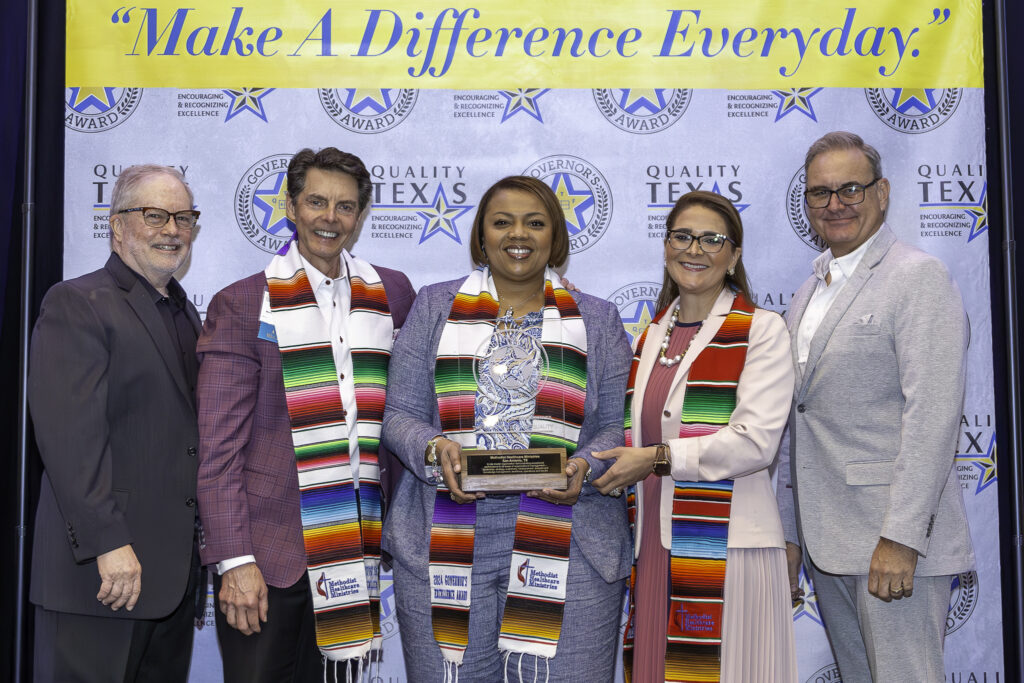
With a mindset of continuous improvement and transformation, MHM was prepared for success. In February 2024, the organization received the Governor’s Texas Award for Performance Excellence (TAPE). The award is the highest level of achievement regarding best practices for participating organizations – bestowed by the Quality Texas Foundation Regional Program (QTFRP). MHM was one of only two Texas organizations to receive the recognition after successfully adopting and utilizing the Baldrige Criteria for Performance Excellence, a program that raises awareness about the importance of performance excellence and empowers organizations to reach their goals and improve results. The process began with an application which required months of collaboration and review. MHM was then selected for a formal site visit from TAPE examiners, who were introduced to various levels of the organization during a three-day period. MHM was recognized for its leadership, strategic planning, customer focus, measurement, analysis and knowledge management, workforce focus, and operations focus and results. Maroney-Omitade believes the TAPE recognition signifies dedication from all members of the organization and their commitment to excellence, and those the organization serves, “That is the joy when people begin to see themselves in the work. It demonstrates that there are team members who recognize what we’re trying to do and why we’re trying to do it. They want to be a part of helping to make Methodist Healthcare Ministries better.”
The journey to advance health equity is a long-term commitment and MHM recognizes to further its journey – transformation must begin within. By transforming internal processes and culture, greater strides are being made. As team members address inherent barriers across MHM’s service area, it is crucial they foster an understanding of equity, diversity, and inclusion – elements that contribute to the organization’s strategic work and interaction with those MHM serves and works alongside.


